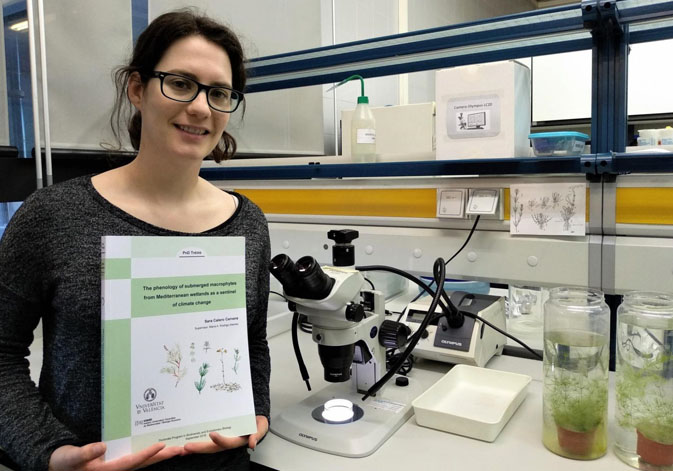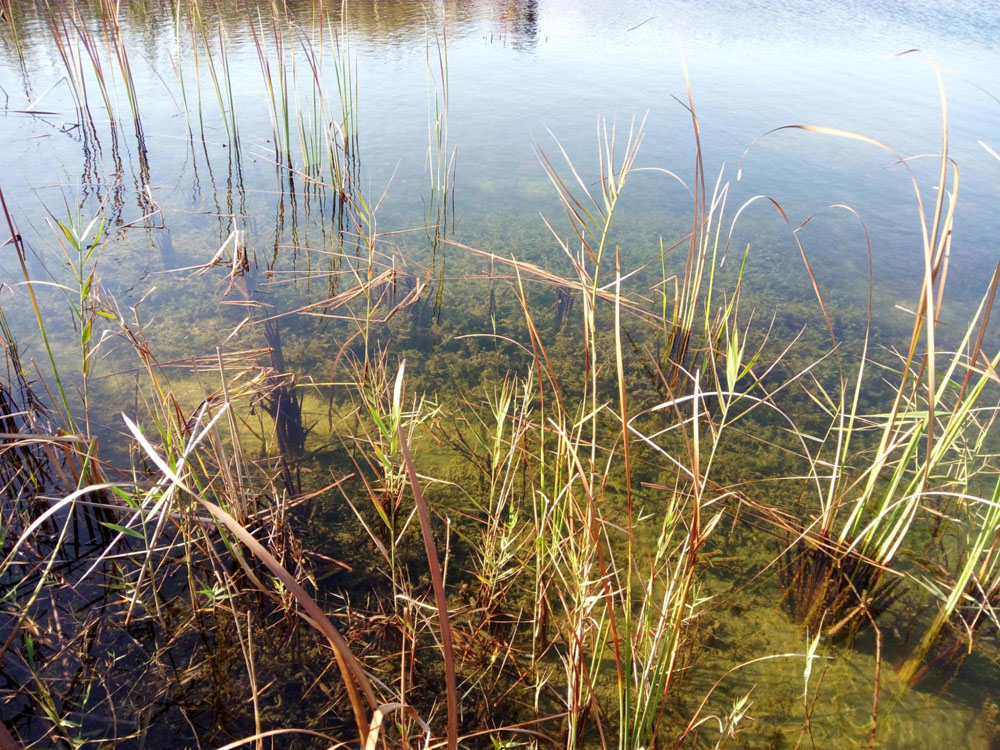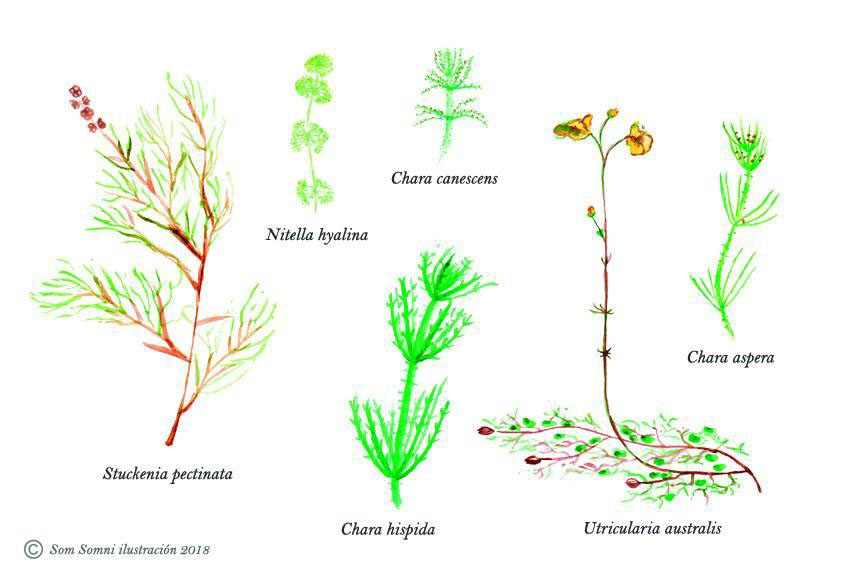
The Iberian Association of Limnology (AIL) has selected the thesis of Sara Calero, researcher of the Cavanilles Institute of Biodiversity and Evolutionary Biology, as the best Spanish thesis of 2018 in the field of Limnology (the study of freshwater ecosystems). This month her study will be evaluated by the European Federation for Freshwater Sciences, within the framework of a European contest that will award the best thesis in this area for the years 2017 and 2018.
The thesis of Sara Calero, who has established a methodological basis to study the phenology of submerged macrophytes and discover how this can act as a tracer of climate change, has been selected by the AIL for its innovative nature, as well as its structure and clarity . In addition, the jury of the AIL has also highlighted the work and production derived from his thesis, since the researcher has written eight scientific articles, five of which have been published in international journals.
The researcher has quantified the production of sexual organs (gametangiums and flowers) of the macrophytes and has carried out a monitoring of the physical and chemical characteristics of the water where the plants live to describe and compare the data of the different species through analytical methods. These include the thermal weather model (to study beginnings, peaks and reproductive periods) and circular statistics techniques (to understand the seasonality of the reproduction of each species). Sara Calero has carried out the study in two Mediterranean brackish lagoons of the Albufera Natural Park of Valencia.
In addition, the researcher has pointed out that the water temperature, the hydro level and salinity are the factors that can be altered by climate change and that most affect the maturation of the sexual organs of macrophytes.
Of the six species studied, charophytes Chara hispida, Chara aspera, Chara canescens and Nitella hyalina and angiosperms Stuckenia pectinata and Utricularia australis, are the first “best candidates to trace the variations of the factors of climate change”, says Calero. In addition, in the thesis The phenology of submerged macrophytes from Mediterranean wetlands as a sentinel of climate change it is emphasised that in order to accurately predict the future of the ecosystems it is necessary to know in detail the response of submerged macrophytes throughout their life cycles.
The research lays the foundations to establish a realistic design in the collection of data series in this field of research and aims to contribute to other studies on the phenology of macrophytes that include other places, latitudes and periods of time.
Sara Calero has worked under the direction of Professor María Antonia Rodrigo Alacreu. She received an FPU (University Teacher Training) grant between 2014 and 2018 to carry out her doctoral thesis in the Integrative Ecology laboratory of the e3 research group (Ecology, Ethology and Evolution) of the Cavanilles Institute of Biodiversity and Evolutionary Biology. In addition, the Language Policy Service of the University of Valencia has granted an economic incentive to Calero for carrying out her thesis in English.
Symposium in Zagreb
The doctoral thesis of Sara Calero has been selected by the Iberian Association of Limnology (AIL) to be evaluated by the European Federation for Freshwater Sciences (EFFS). The study competes for the prize for the best thesis in Limnology in Europe for the years 2017 and 2018, within the framework of a contest in which the AIL has selected two theses from Spain, one for each year; and two from Portugal.
The prize for the final result, which will be decided at the end of February, will be a diploma and a scholarship to attend the next Symposium of the European Federation for Freshwater Sciences (SEFS11) to be held in Zagreb (Croatia). In addition, whoever wins will have the opportunity to offer a lecture to explain his / her thesis during the scientific meeting.
Photo captions:
- Mallada of the Natural Park of the Albufera of Valencia where the submerged vegetation studied in the thesis is observed.
- Illustration of the species studied in Sara Calero's doctoral thesis.
Images:











